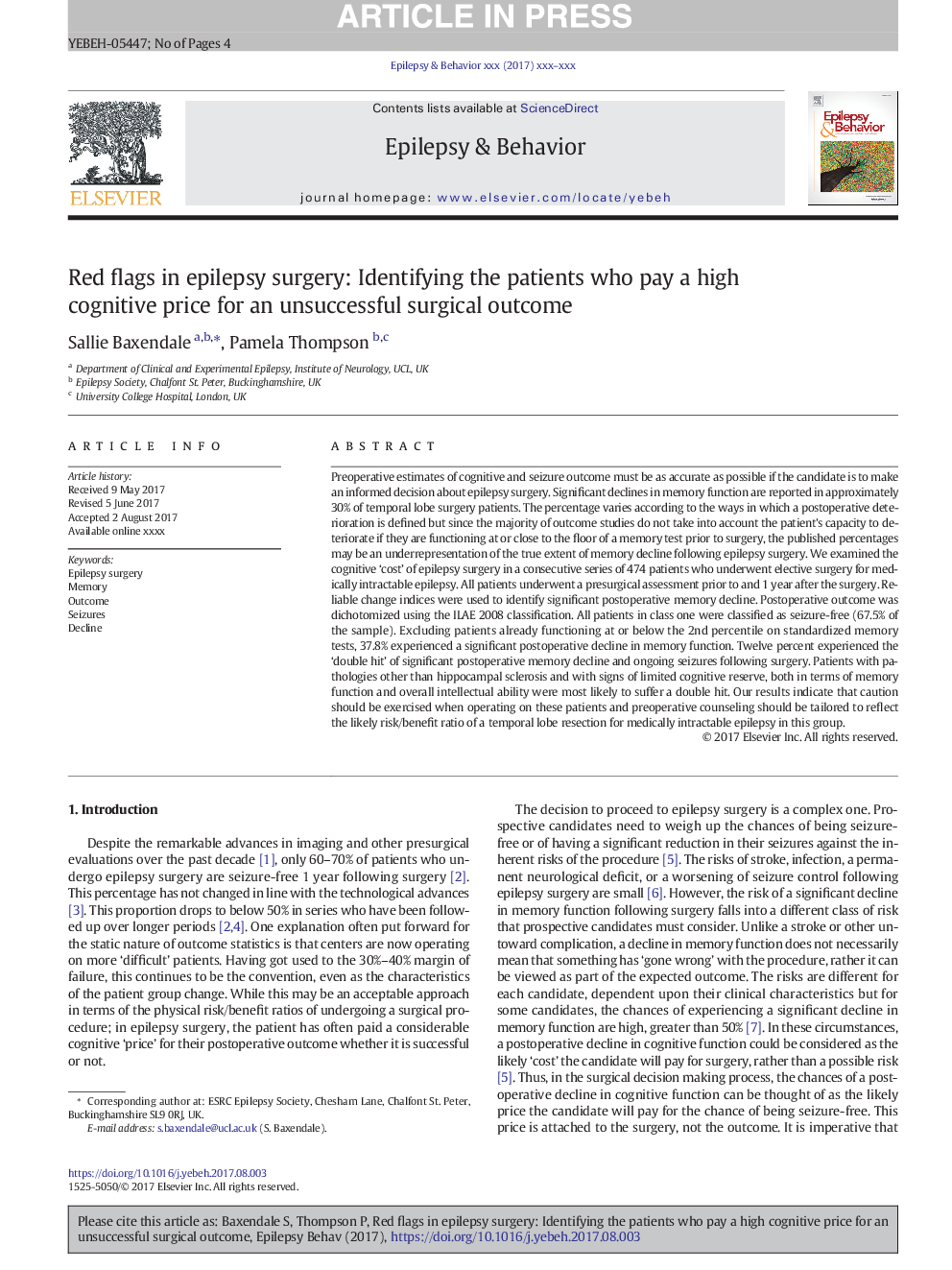ترجمه فارسی عنوان مقاله
پرچم های قرمز در عمل جراحی صرع: شناسایی بیمارانی که قیمت شناختی بالا را برای نتیجه جراحی ناموفق
عنوان انگلیسی
Red flags in epilepsy surgery: Identifying the patients who pay a high cognitive price for an unsuccessful surgical outcome
| کد مقاله | سال انتشار | تعداد صفحات مقاله انگلیسی |
|---|---|---|
| 155851 | 2018 | 4 صفحه PDF |
منبع

Publisher : Elsevier - Science Direct (الزویر - ساینس دایرکت)
Journal : Epilepsy & Behavior, Volume 78, January 2018, Pages 269-272
ترجمه کلمات کلیدی
جراحی صرع، حافظه، نتیجه تشنج کاهش می یابد،
کلمات کلیدی انگلیسی
Epilepsy surgery; Memory; Outcome; Seizures; Decline;

